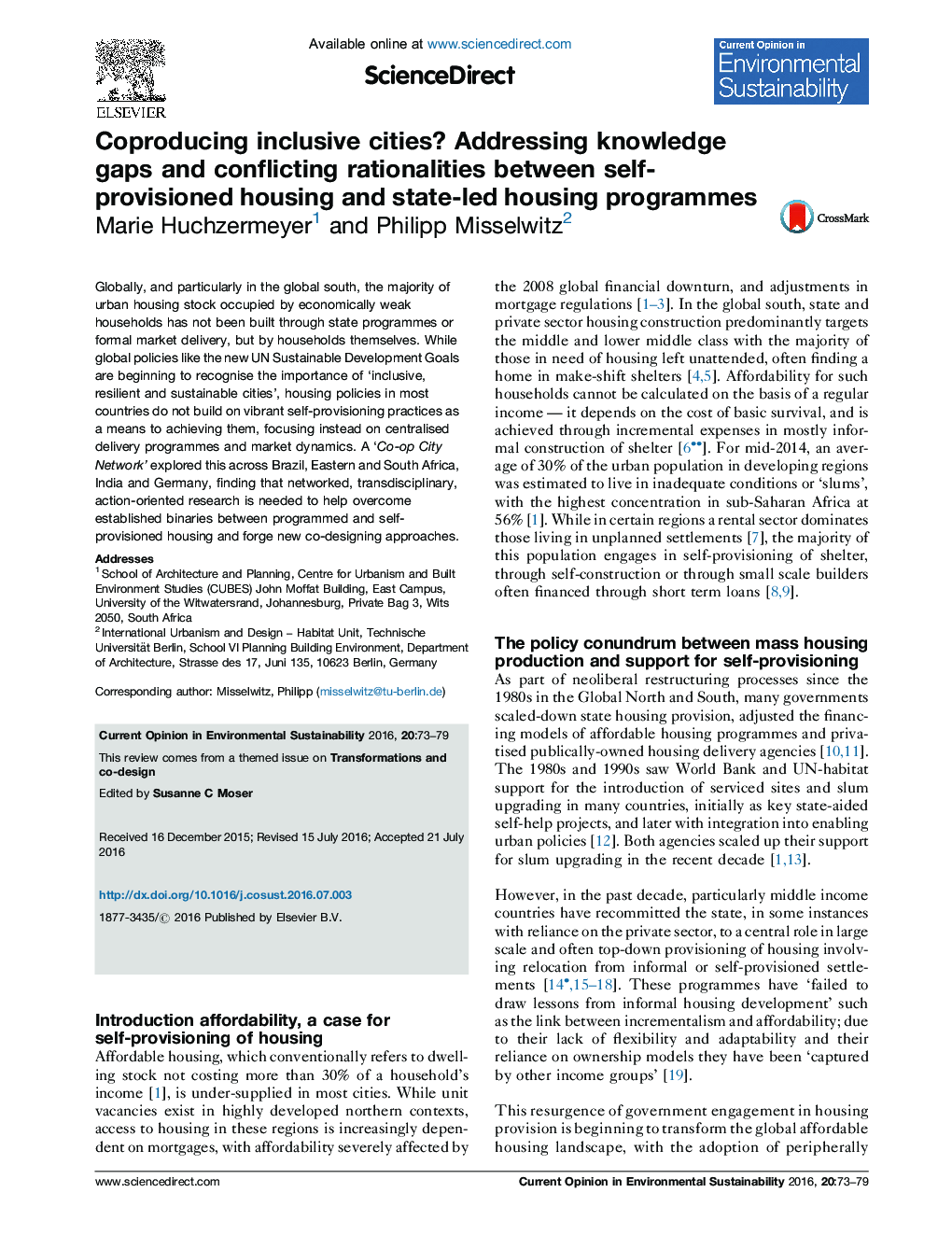| کد مقاله | کد نشریه | سال انتشار | مقاله انگلیسی | نسخه تمام متن |
|---|---|---|---|---|
| 1051309 | 1484919 | 2016 | 7 صفحه PDF | دانلود رایگان |
• Self-provisioning of housing holds potential but must be supported by policy.
• Transdisciplinary knowledge networks can energise housing policy reviews.
• Co-design is based on constant re-negotiation of collaboration at local level.
Globally, and particularly in the global south, the majority of urban housing stock occupied by economically weak households has not been built through state programmes or formal market delivery, but by households themselves. While global policies like the new UN Sustainable Development Goals are beginning to recognise the importance of ‘inclusive, resilient and sustainable cities’, housing policies in most countries do not build on vibrant self-provisioning practices as a means to achieving them, focusing instead on centralised delivery programmes and market dynamics. A ‘Co-op City Network’ explored this across Brazil, Eastern and South Africa, India and Germany, finding that networked, transdisciplinary, action-oriented research is needed to help overcome established binaries between programmed and self-provisioned housing and forge new co-designing approaches.
Journal: Current Opinion in Environmental Sustainability - Volume 20, June 2016, Pages 73–79
